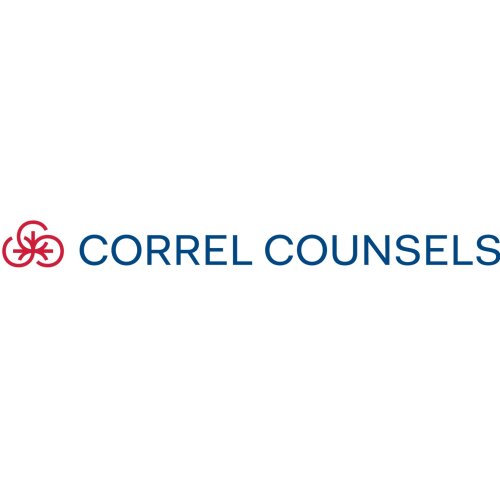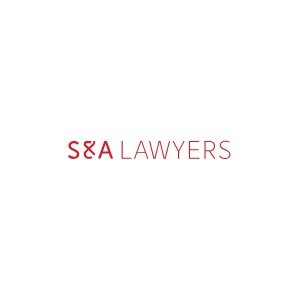Best Labor Law Lawyers in Maldives
Share your needs with us, get contacted by law firms.
Free. Takes 2 min.
Or refine your search by selecting a city:
List of the best lawyers in Maldives
About Labor Law in Maldives
The labor law in the Maldives, also known as the Maldives Employment Act, governs the rights and obligations of the workers and employers in the country. This law safeguards the rights of the employees by setting forth specific guidelines and standards that employers must adhere to. Topics such as wage and remuneration, working hours, annual and sick leaves, probationary periods, termination of employment, occupational health and safety, and dispute resolution are detailed in this Labor Law.
Why You May Need a Lawyer
If you're an employee or an employer, you may need the services of a lawyer who specializes in labor laws in various situations. These can include drafting, reviewing, or negotiating employment contracts, addressing issues related to termination or dismissal, resolving disputes concerning labor rights, and ensuring compliance with local labor laws. Legal representation can also be crucial if you are dealing with complex issues such as workplace harassment or discrimination, wage disputes, or claims related to workplace injury.
Local Laws Overview
The Maldives Employment Act provides the labor law framework in the country. Some of its key provisions include a maximum workweek of 48 hours, annual leave of 30 days after a year of service, and provision for both sick and maternity leave. The law also stipulates that employees cannot be terminated without just cause and due process. The non-discrimination clause ensures fairness based on race, nationality, social standing, religion, political views or affiliation with any political party. The law also outlines a guideline for resolving disputes within a company, and if the process is unsuccessful, it can be referred to the Labor Relations Authority.
Frequently Asked Questions
What is the minimum wage in the Maldives?
The Maldives government sets the minimum wage to ensure fair remuneration for employees. This may vary depending on different industries and is subject to periodic review and changes.
What are the working hours as per Maldives Labor Law?
As per the Maldives Employment Act, the normal working day should not exceed eight hours, and the workweek should not exceed 48 hours, exclusive of rest days.
Is overtime pay mandatory under Maldives Labor Law?
Yes, the law mandates the payment of overtime for any work done beyond the agreed-upon working hours.
Can an employer terminate an employee without cause in the Maldives?
The Maldives Employment Act states that an employer cannot terminate an employee without justifiable cause and without following the due process of law.
How are labor disputes resolved in the Maldives?
According to the Maldives Employment Act, any labor disputes should first be addressed within the company following internal procedures. If a resolution is not reached, the dispute can be escalated to the Labor Relations Authority.
What rights do employees have in the Maldives?
Employees have the right to fair remuneration, safe and healthy working conditions, freedom from harassment and discrimination, and the right to join or form trade unions.
What obligations do employers have in the Maldives?
Employers are obligated to respect the rights of their employees, provide fair remuneration and safe working conditions, avoid discrimination, and adhere to the employment guidelines set forth in the Maldives Employment Act.
What is the role of the Labor Relations Authority?
The Labor Relations Authority is responsible for ensuring compliance with labor laws, resolving labor disputes, offering advice on labor matters to both employers and employees, and recommending policy changes to the government regarding labor matters.
How are employment contracts enforced in the Maldives?
Employment contracts have to be in accordance with the Maldives Employment Act and are legally binding. If any disputes arise concerning the contract, they can be taken up with the Labor Relations Authority.
Are there specific laws about harassment and discrimination in the workplace?
Yes, the Employment Act in Maldives stipulates that harassment and discrimination on any grounds in the workplace is prohibited, and employers are obligated to ensure a working environment free of such abuses.
Additional Resources
The Ministry of Economic Development and the Ministry of Human Resources, Youth and Sports are two important government bodies overseeing labor issues in the Maldives. The Employment Tribunal and the Labor Relations Authority are also relevant bodies to be aware of. Various non-governmental organizations such as the Maldivian Red Crescent can also provide support and advice on labor issues.
Next Steps
If you believe you need legal assistance in Labor Law in the Maldives, the first step is to seek advice from a certified legal professional who has expertise in this field. Gather and organize all relevant documents and evidence related to your matter to help your lawyer understand your situation. It's also imperative to understand the legal processes and your rights and obligations under the Maldives Labor Law to protect your interests best.
Lawzana helps you find the best lawyers and law firms in Maldives through a curated and pre-screened list of qualified legal professionals. Our platform offers rankings and detailed profiles of attorneys and law firms, allowing you to compare based on practice areas, including Labor Law, experience, and client feedback.
Each profile includes a description of the firm's areas of practice, client reviews, team members and partners, year of establishment, spoken languages, office locations, contact information, social media presence, and any published articles or resources. Most firms on our platform speak English and are experienced in both local and international legal matters.
Get a quote from top-rated law firms in Maldives — quickly, securely, and without unnecessary hassle.
Disclaimer:
The information provided on this page is for general informational purposes only and does not constitute legal advice. While we strive to ensure the accuracy and relevance of the content, legal information may change over time, and interpretations of the law can vary. You should always consult with a qualified legal professional for advice specific to your situation.
We disclaim all liability for actions taken or not taken based on the content of this page. If you believe any information is incorrect or outdated, please contact us, and we will review and update it where appropriate.
Browse labor law law firms by city in Maldives
Refine your search by selecting a city.
















